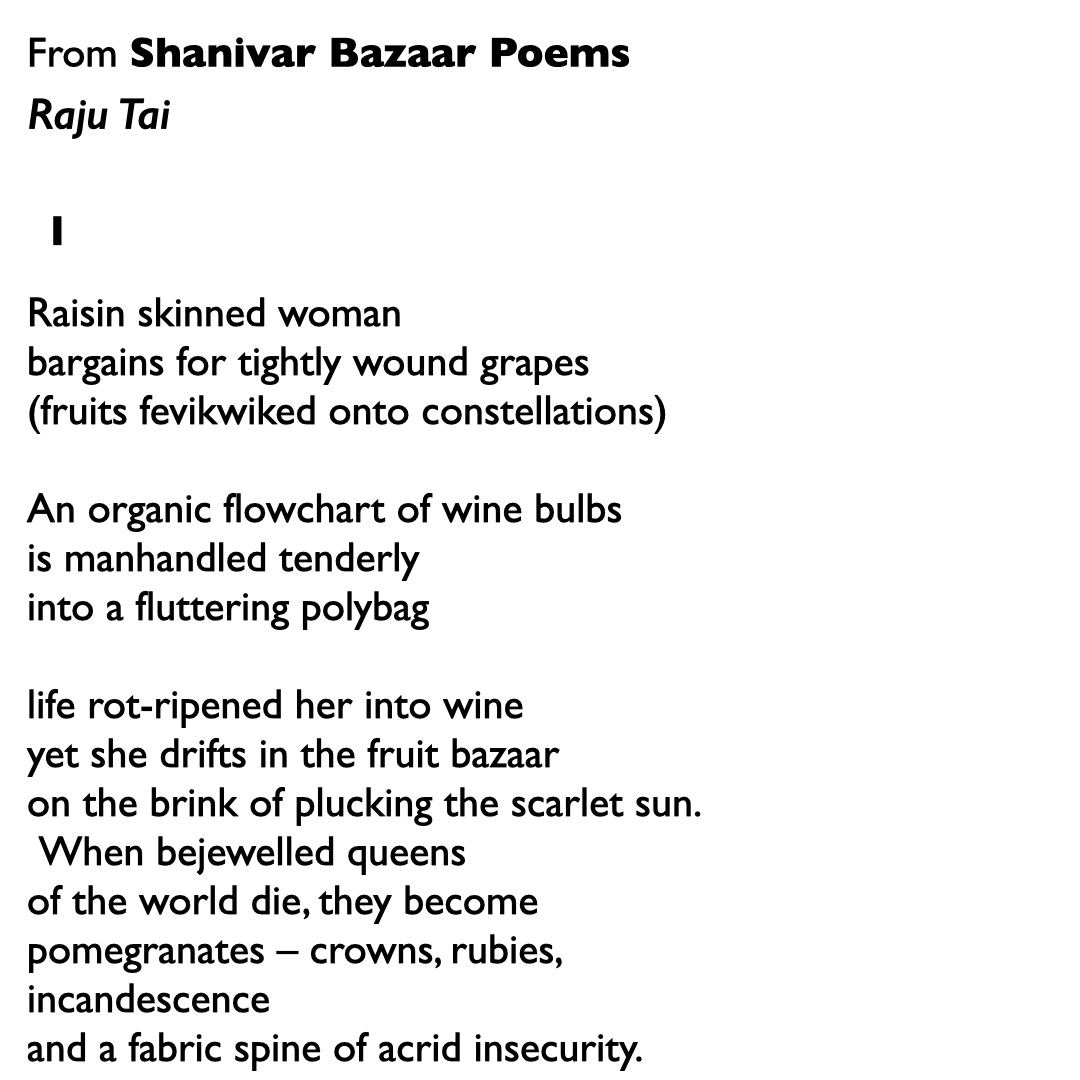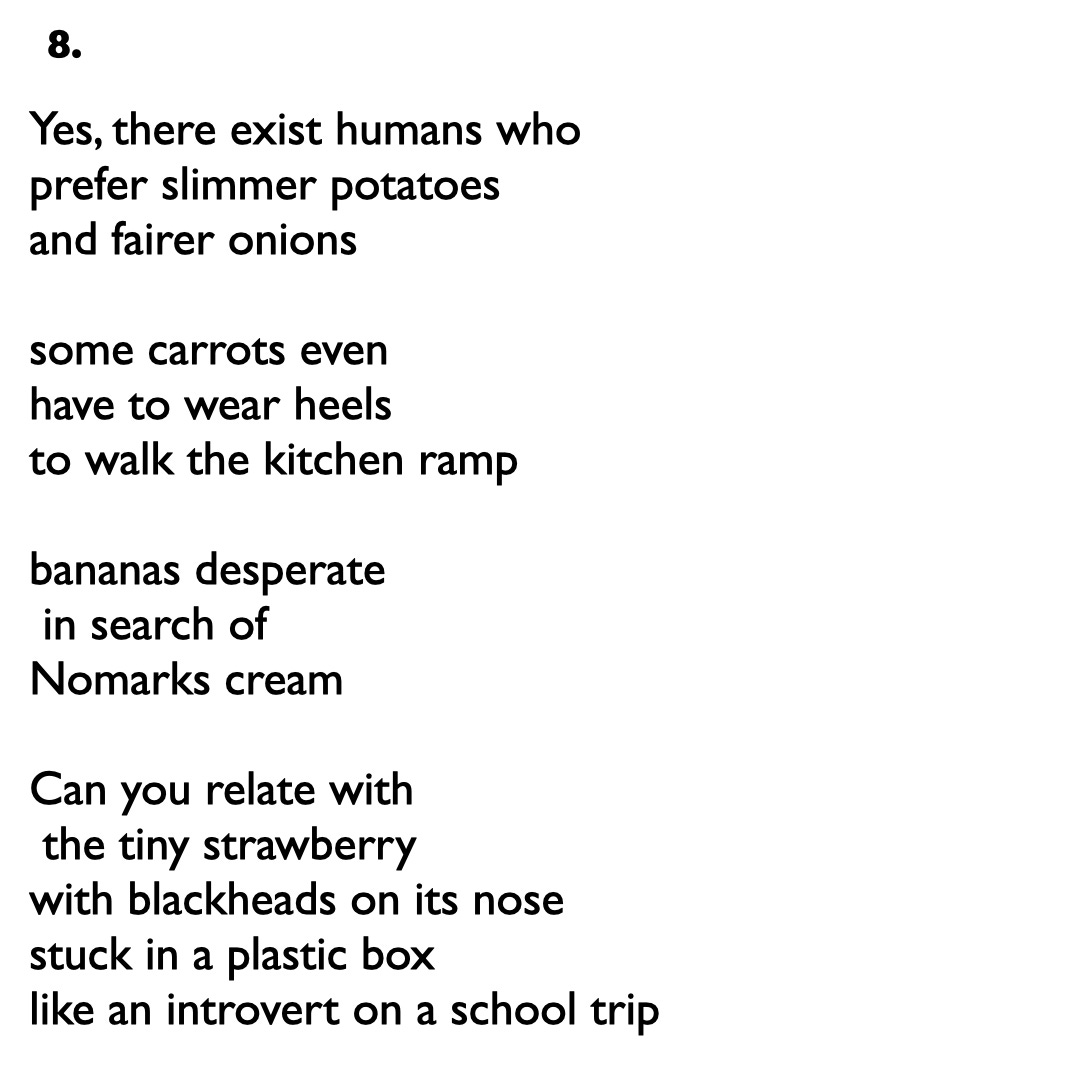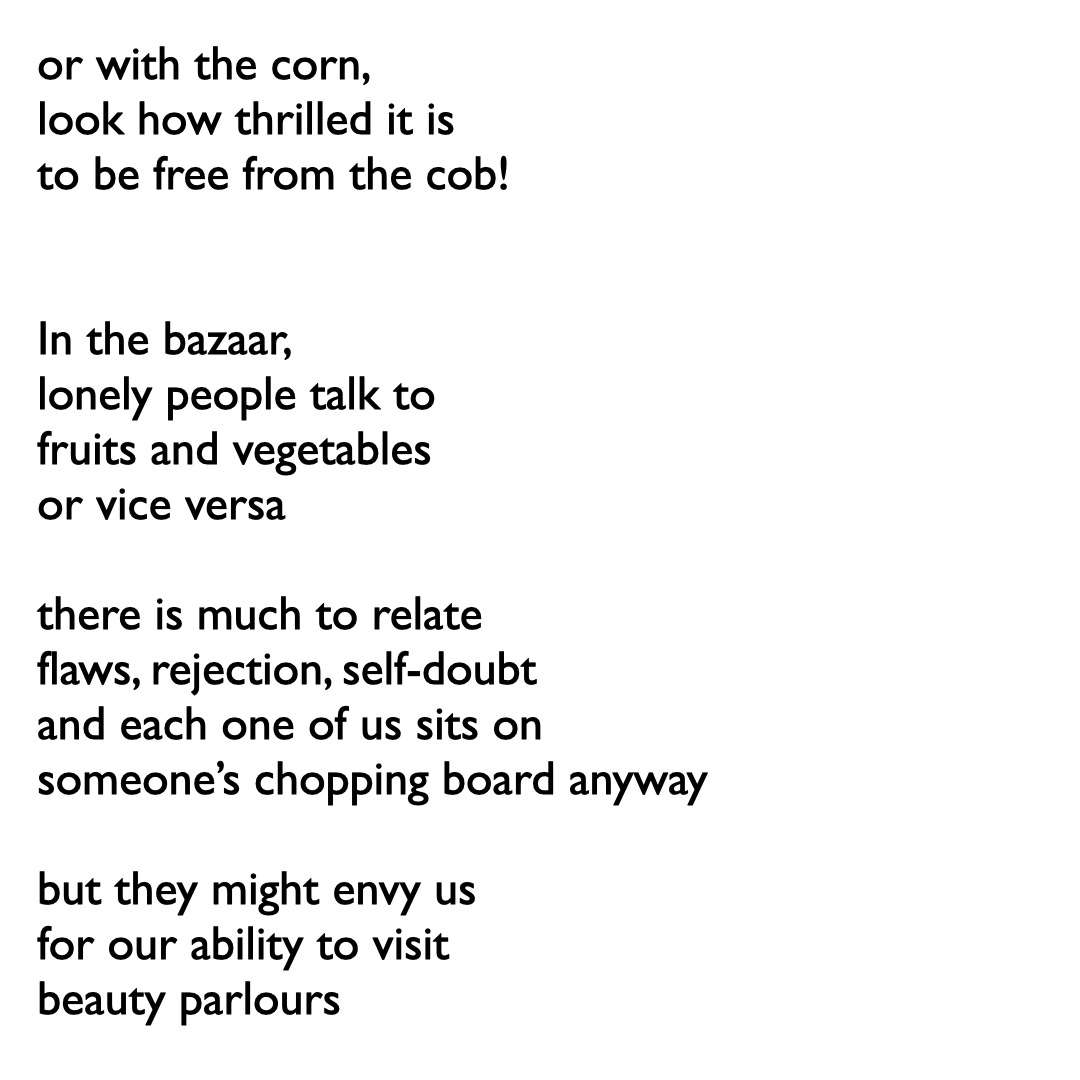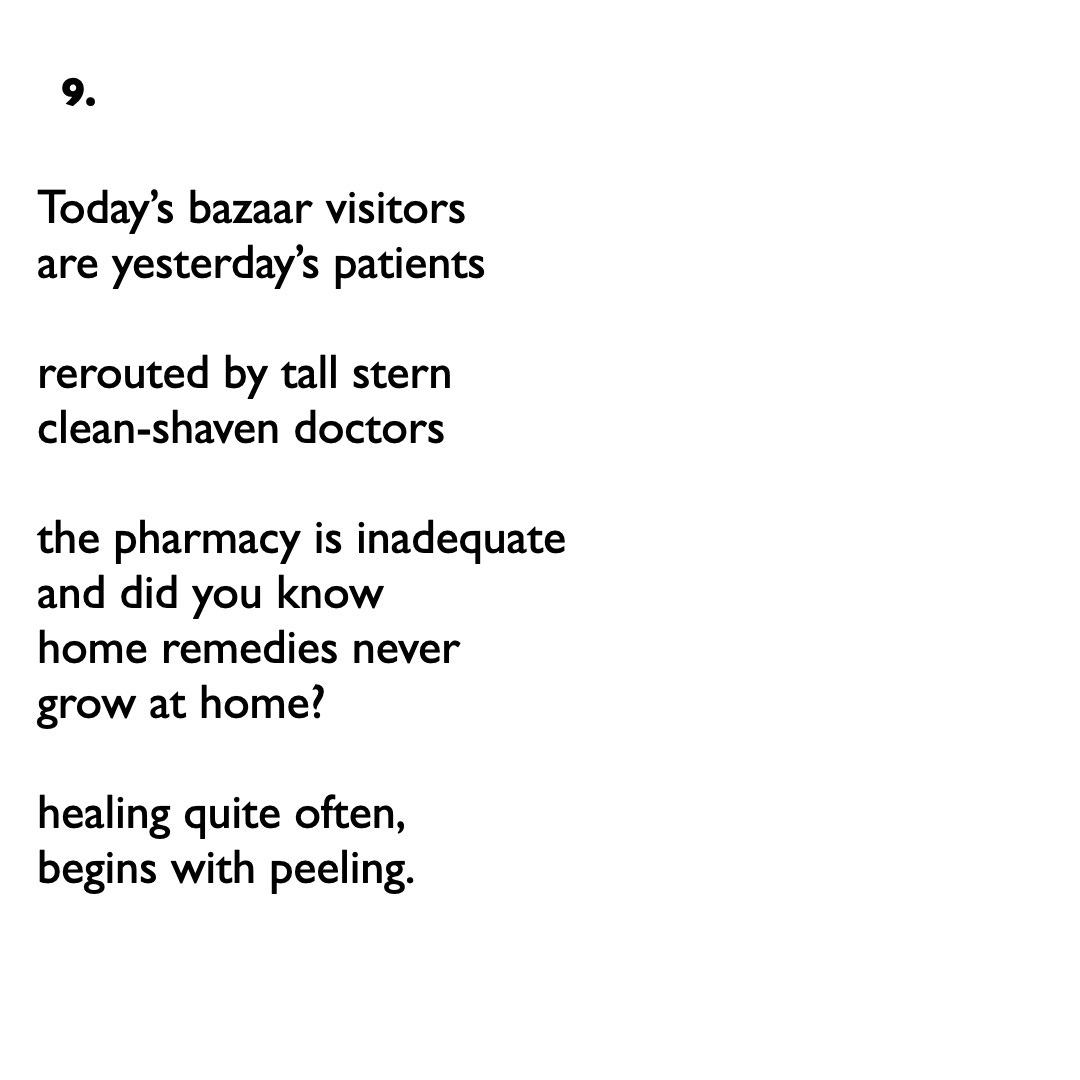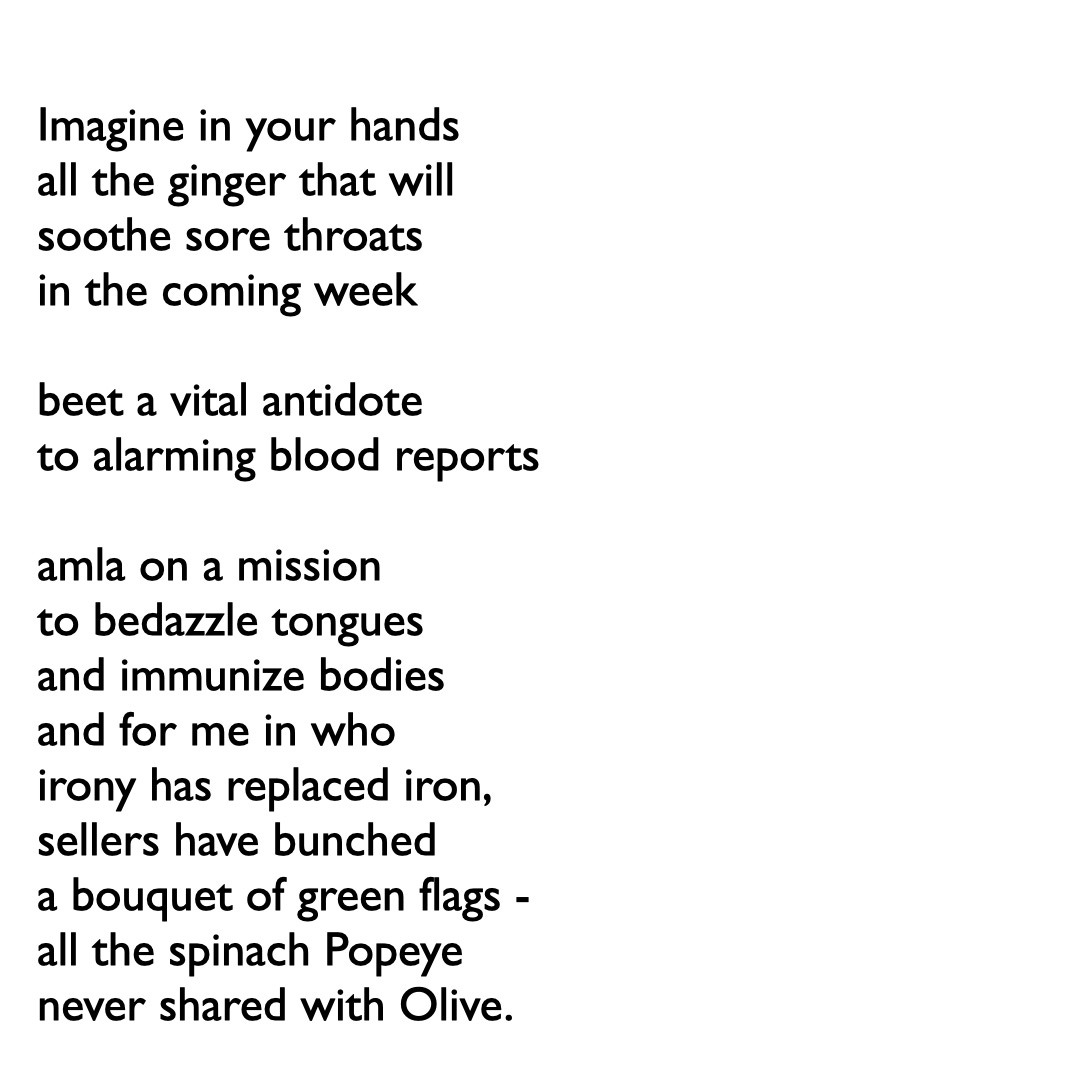Shanivaar Bazaar poems - Raju Tai
Once every fortnight, as is my habit, my feet find their way to the Mangal Market in Bhogal. I have lived by this bazaar for the last 3 years, and it is more than a mother to me. I share with you a few excerpts from a letter I wrote to a dear friend in Delhi after visiting the market last month. This friend had introduced me to this market, and she was not in the city at the time:
…Many offices, malls, and public spaces were opening up today. Today was revenge. The city was coming out. It was Tuesday, and I was just in time for Mangal Bazaar in Bhogal. Poets have gone hoarse yelling about the spectacle of the ordinary, and I could see it once a week in Bhogal, (one of the many makeshift markets of Delhi, that are made and unmade in a matter of a few hours). Four years ago I had chosen to stay in the area, after catching its magic. In the time it takes for the streets of this city to rise up like an argument, the narrow roads of Bhogal turn into a mela. As I reached the market on my cycle, I could hear the calls from more than a few sidestreets away. 30 Rs. for a pajama, in any colour you could dream off - flat. And then, as I entered, Sarkaar ne tho desh bech diya, ab kya reh gaya! Le lo auntyji, nahi tho baad mein kuch nahi mil jayega. The woman holding up the plastic chalni laughed and gave him the money - his price not hers. He winked at me as I held up the orange thread - panch rupay bhai, aapke liye khaas price. He stood behind his fortress of wares - from the everyday to 'occasion'. Utensils, plastic boxes, cup stands, clips, stationary, combs, lipstick holders. How many homes lived in that stall?
This is the beauty of Mangal market. It rests in the periphery. Bhogal’s Mangal Market isn't the three course dinner, it is the thali. God is in the detail, in the leftovers, the little things, the hacks, the cooker ki seethi. Mangal market doesn't promise you every luxury, it promises you the cheapness, it promises to patch up the small things that remain after the storm has left your life in shambles. The market's wares are the punctuation, not the meat itself. From morning to night, bedsheet to toilet paper, bhogal market has it all, but at half price.
You walked at the speed of one stall per minute, and it never wore you out, because you never knew where to look. It felt like all of south east delhi was here, negotiating with their dreams, at eye level. … The crowd at Mangal market, like all makeshift bazaars, had that peculiar attitude of slow haste. Nobody got angry, nobody shouted at another, but everybody pretended to be in a hurry. The urgency was garbed in the energy of the shrill bargains, punctuated with satirical one liners. A young saadi seller was flirting with his beloved, his beetroot face bursting as he reeled off his exorbitant rates for a wedding lehenga. His lover giggled uncontrollably flanked by an entourage of friends pretending to be interested in his wares. This was a safe space. His skull cap lay on a pole, as he smiled, and bargained with the other customers. There was nothing real in the entire market. Only First copy. And that is why it felt familiar.
…As I reached my bhaaji wala, a staple for three years, before I moved out to a place only ten minutes away, I could see that he had seen me before I had noticed him. He stood there beaming like a february moon, after a winter of empty streets. Bade jummo ke baad nazar aa rahe ho! I hadn't meant to buy any vegetables from him, but my cycle screeched to a halt of its own accord. He didn't even ask as he started to weigh what he knew I wanted. Poi shaak nahi hain saabji, he told me, but he put arbi, and kachcha kela and moringa (south indian no). He pocketed the hundred rupee note and added dhaniya mirchi (the bargaining was a formality like those kungfu fights that happened in the minds of the masters before the actual murderous thrust, the negotiation was already done, and we both knew how much would exchange hands). He touched my shoulder before I left, aate rahiye sir, poi shaak mangwaa loonga, he ventured. Nobody else bought malabar spinach, that too, when it was not in season (ab holi ke baad, he had said at the beginning), so this was an offer I couldn't refuse….
…What is it about this assemblage of scraps, this makeshift existence that lives in the interstices? What is this headrush, this torrent of delight, that turns up like a floating island for a few hours every week, intoxicating a whole neighbourhood, turning the city into spacetravel? Bhogal was Delhi at its worst, and its best. It picked up its mistakes, pulled up its socks, after a drunken night of misshapen revelry, and got into the thick of the world.
A market that had cooker ki seethi could answer all your dreams.
This is what home feels like.
***
Why am I talking to you about bazaars? Last month when I went to this place, for perhaps the hundredth time, I felt strangely emotional. The Mangal Market had been shut again, briefly, during the third wave, and I was waiting for it to open up. This market, without realising, had become such an integral part of my experience of this city, that it made me feel safe. Mangal Market is more than a space of transaction, it houses in its transience the certainty of a changing urbanism. It is Bhogal’s Ship of Theseus, every commodity as precious as the smile that offers it up. In its successive beginnings, it ventures the promise of newness.
That day, I wrote to my dear friend, the poet-educator Raju Tai, as I remembered her series of Shanivaar Bazaar poems. These poems have been written many years ago, but they sparkle with a sensorial banter that immediately imprisons the senses. Raju Tai has this amazing ability to open up a world with the careless glee of spontaneity, with uninhibited rawness that doesn’t shy from contrasts, in both imagery and speculation, but most of all with the chittering vibrancy of language. As I write this, I am reminded of our discussions about how love can only be bilingual, or how a watermelon could be sexy, say. She uses the syntax of desire to caress a thing with such single-minded creative zest, that it inevitably rings with the underlying politics of ordinary love affairs - note, for instance, her ‘slender bananas, veined cucumbers,/ limp zucchinis, wet watermelons/ ripe figs, glowing peaches/squishy squashy chikoos’. But then even these will decay, and she reminds you elsewhere - ‘It’s not biology silly, its economics:/the spoilt never perish’.
Her poems are never linear. Like the markets she writes about, they unfold like an explosion of pomegranate seeds, in all directions. Her conversational idiom folds into itself, with the nonchalance of little details that would otherwise be out of place, if they weren’t caught by her roving pen. What is fascinating to me, is that the candidness of her searching questions, delivered with dry unironic wit, cast all things in the same tenor. In her poems you will find that panties can houses oases, a nosepin pierces through galaxies, and creepy men scratching their crotches are in pigeon flocks. I had forgotten how much I enjoyed the play of Tai’s writing, and the bazaar is no better arena, I think, to see her words dance.
I have excerpted 4 from her collection of her 9 Shanivar Bazaar (Saturday Market) poems below:
If the poetry, and the commentary, resonate with you, do consider ‘buying me a coffee’.
If the portal isn’t working. Please write to me - poetly@pm.me
(Matlab, if you can’t, that’s also fine, obviously. This will always be a free newsletter)
Note: Those, not in India, who’d like to support the work I do at Poetly, do write to me - poetly@pm.me. (Paypal seems to have left the building, still figuring it out)
You can write to me, waise bhi, if you feel like it :)
Nahi tho, if you wanna share this post with a friend…
Thanks for reading Poetly! Do subscribe if you are not reading this in your inbox. Cheers!



